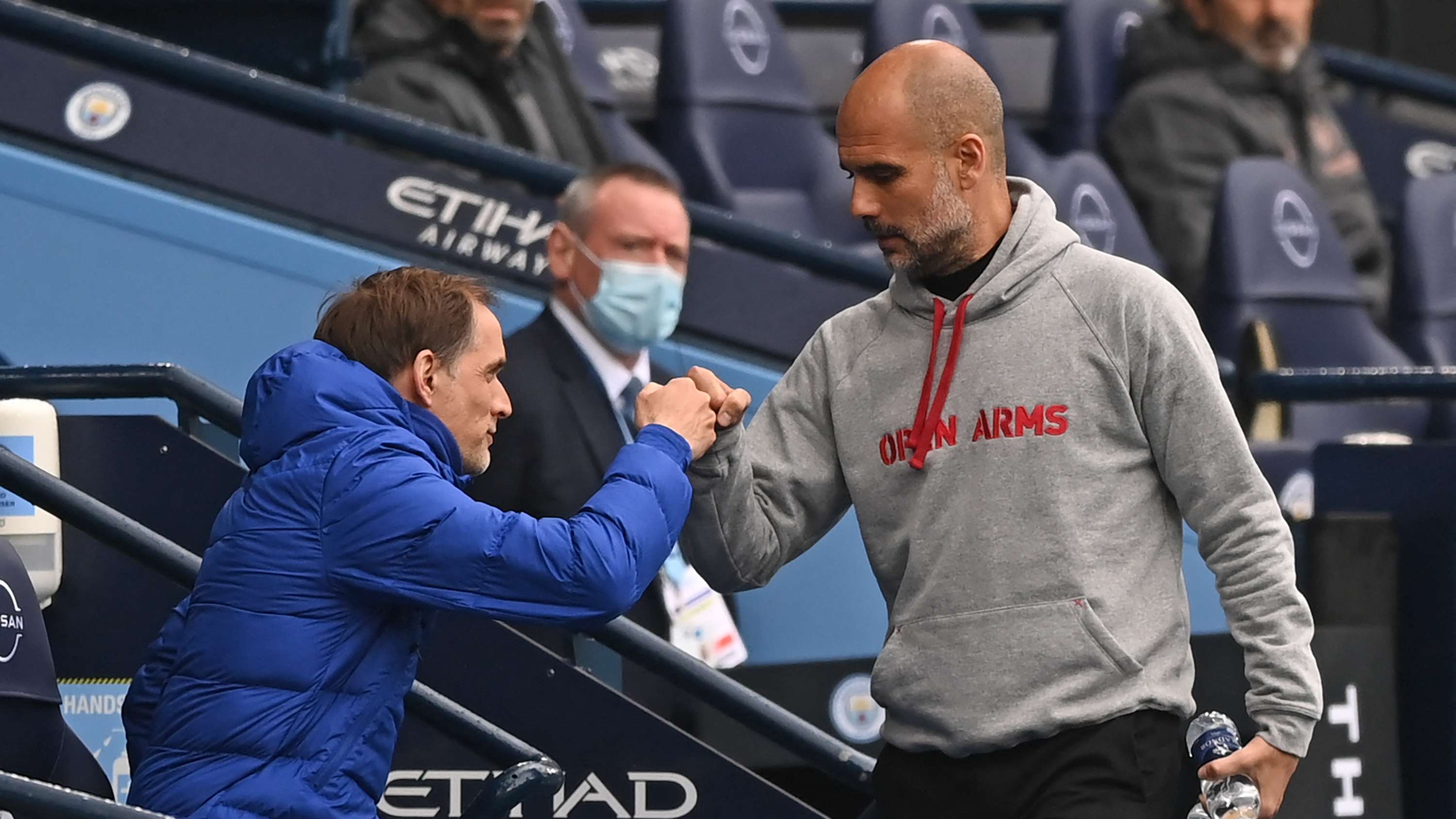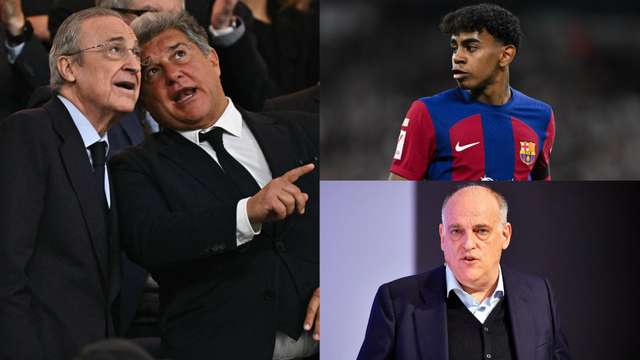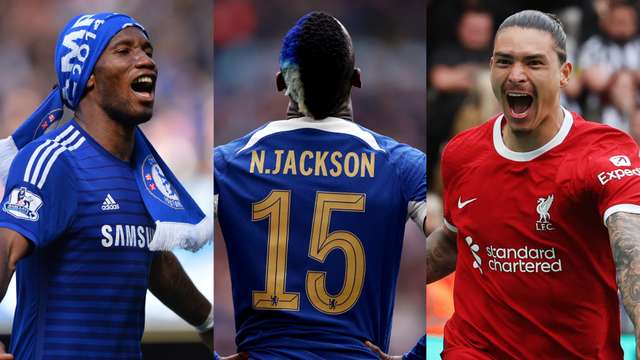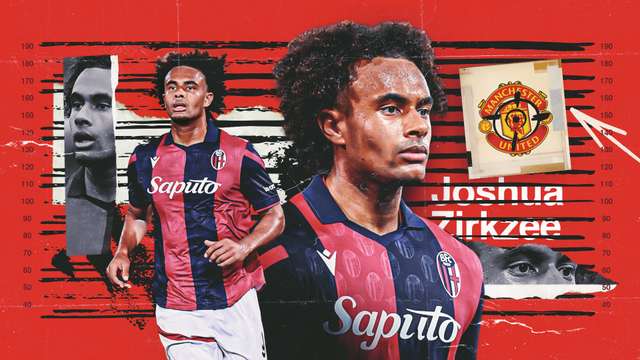The tactical and personnel changes made by two managers keen not to show their hand ensured Saturday’s game between Manchester City and Chelsea was not, in fact, a dress rehearsal for the Champions League final.
But those very changes – the bluffs and double bluffs, the tweaks and counter-tweaks – did make the visitors' 2-1 win over City a dress rehearsal for the show that will dominate the Premier League next season and beyond.
It was final confirmation that Pep Guardiola versus Thomas Tuchel is set to be the next great rivalry in English football, and the battle that will define the post-pandemic era of the Premier League.
In many respects, it is a natural successor to Guardiola-v-Jurgen Klopp, a continuation not just of the German school of football but of microscopic attention to detail; of perfectly choreographed set plays punctured or recalibrated by each other’s chess moves.
The mind games will be tactical rather than psychological, the warfare focused on strategic manoeuvres rather than intra-city rivalry or pizza throwing.
But Tuchel-Guardiola will also be a notable departure from Klopp-Guardiola in a tactical sense, reflecting the calmer and more measured battle lines drawn by big clubs across Europe in response to the pandemic.
There are signs that this shift, forced by the congested fixture list and exacerbated by emotionless empty stadiums, is setting in.
The Champions League final will be the opening night of the Premier League’s new frontier. For now, we are still in the previews, and Saturday’s game succinctly captured both the tactical sophistication - and the evolution - that will define the burgeoning Chelsea–City rivalry.
Guardiola played the first card, fielding a highly unusual 3-1-4-2 formation in which Raheem Sterling and Ferran Torres operated as something between free eights and inverted wingers – occupying the half-spaces behind two strikers.
Nobody saw that coming, and it is testament to the challenge Tuchel poses that Guardiola sought to invent an entirely new system.
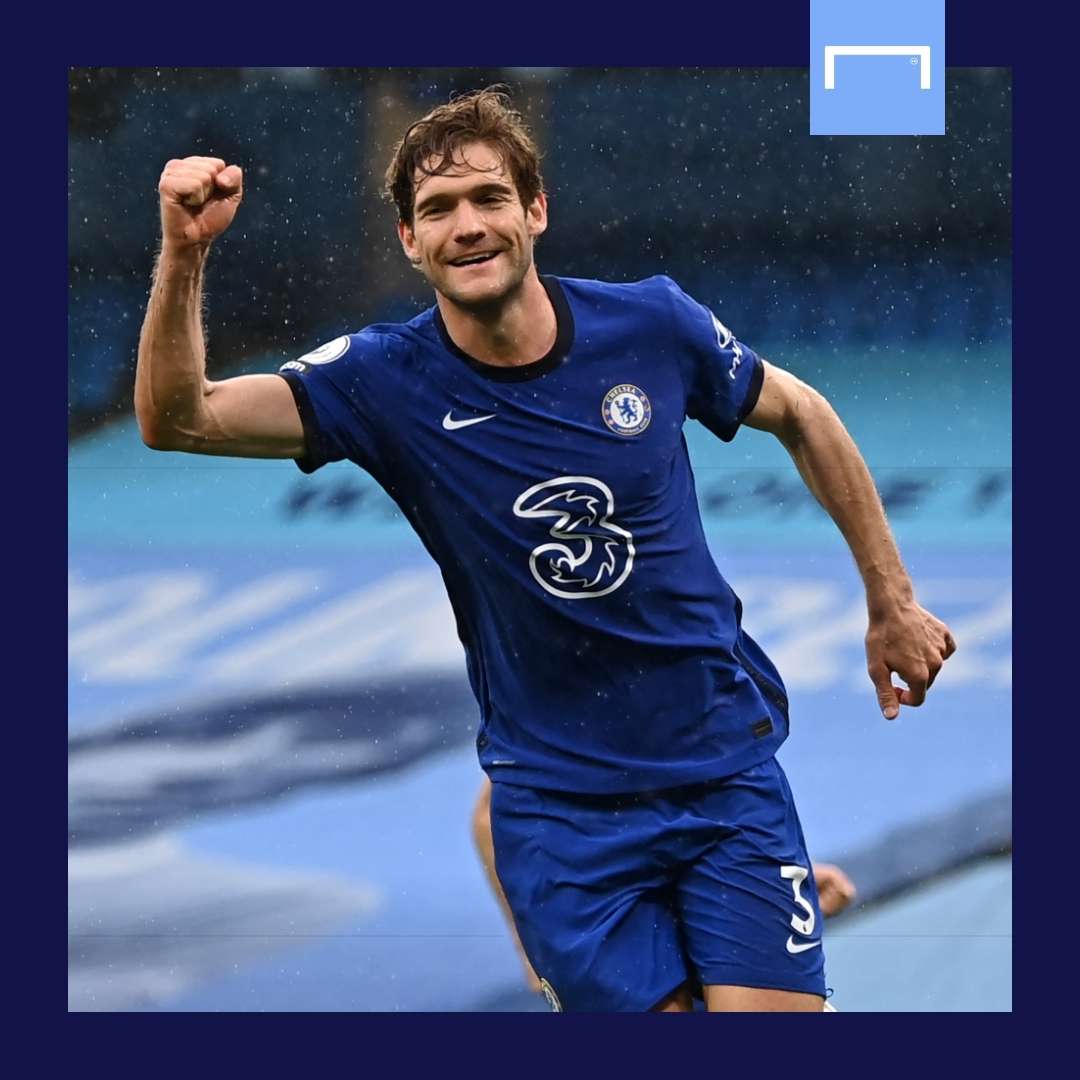 Getty Images
Getty Images
It worked early on, too, as Sterling repeatedly found pockets of space on the outside of a shell-shocked two-man Chelsea midfield. City had a line-splitting pass available over and over again, until Tuchel countered the move by instructing Timo Werner to drop tight onto Rodri.
With the sole City midfielder now man-marked, N’Golo Kante and Billy Gilmour were free to spread wider than they usually would to cover Sterling and Torres.
Nevertheless, Guardiola’s use of two strikers making runs through the gaps in Chelsea’s back three led to the opening goal and the penalty Sergio Aguero missed.
His initial game-plan, in other words, was striking enough to have put the game to bed by half-time.
In the second half, though, it was Tuchel who took control of the tactical battle.
Having noted that Chelsea were struggling to progress the ball forward thanks to a clever three-man wall of Sterling, Gabriel Jesus, and Torres blocking the middle of the pitch, Tuchel instructed Christian Pulisic to drop deeper in search of the ball. The American, in turn, helped Chelsea get their more creative players in possession.
More importantly, the Chelsea manager appeared to tell his wing-backs to play more aggressively, with Reece James in particular making darting runs, looking for quick one-twos, and attempting to dribble - often successfully - straight past Benjamin Mendy.
This pushed City back, and allowed the Stamford Bridge outfit to seize the initiative.
It was Guardiola’s turn to react. By introducing Phil Foden and Ilkay Gundogan, City did manage to wrest control back to some extent, although the James-Mendy mismatch was still defining the second half.
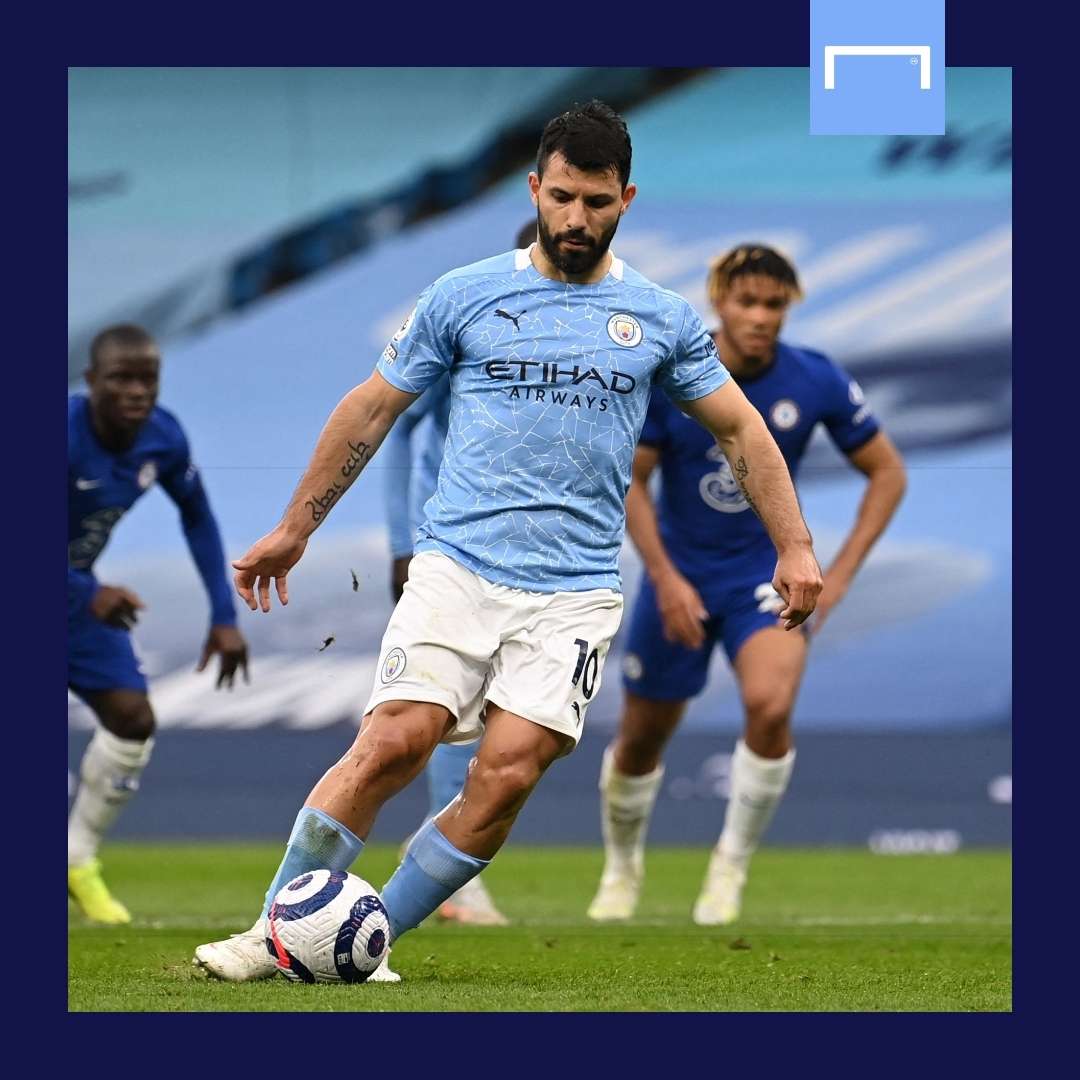 Getty Images
Getty Images
Tuchel reacted faster than Guardiola and went for the kill. He brought Callum Hudson-Odoi off the bench to double up with James and further attack Mendy, and although within four minutes Guardiola withdrew Mendy for Oleksandr Zinchenko, it was too late.
Chelsea had the momentum on this flank, and it came as no surprise when Hudson-Odoi provided the pre-assist for Marcos Alonso’s winner.
Play-by-play tactical analysis of the game tells a story of move and counter-move, of two detailed tacticians locked in an intellectual battle, and indeed this will be the pattern of the Premier League’s next great rivalry.
But while it was an absorbing and high-quality game, it was nothing like the fire and the fury of Liverpool’s encounters with Manchester City over the last few years.
Instead there was tension and stand-off, a risk-averse mentality to the defensive lines and pressing intensities that reflected the calmer waters of pandemic football.
Indeed there are signs, also present in this game, that European football may be set for a lurch back from the gegenpressing of the last five years. We have certainly seen this happen in the Premier League this season, where City have won the title by controlling against pandemic football with suffocating possession.
Elsewhere, Inter’s league title under Antonio Conte may help bring reactive Italian tactics back into fashion, as might Diego Simeone if his Atletico Madrid team win La Liga.
Meanwhile, the ever-widening financial imbalance has left the superclubs out of practice when facing their peers in the latter stages of the Champions League, leading to a more cautious setup.
The sit-back-and-counter methods we have seen from Paris Saint-Germain and Real Madrid in the Champions League this season point to football bouncing back from the high press and high line.
Chelsea’s win in Manchester – a tense and explosive game, but one that never threatened to spiral out of control – conformed to this shift.
It has revealed what the next year or two of the Premier League will look like: a fascinatingly high-brow tactical chess match between Tuchel and Guardiola, but one with a little less chaos than the Man City manager has been used to in England.

